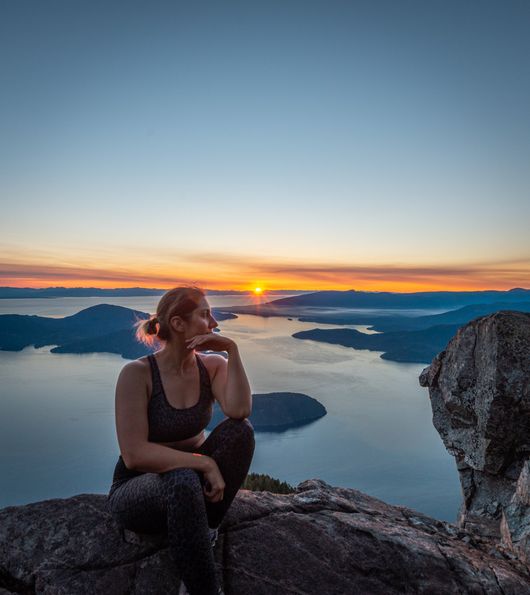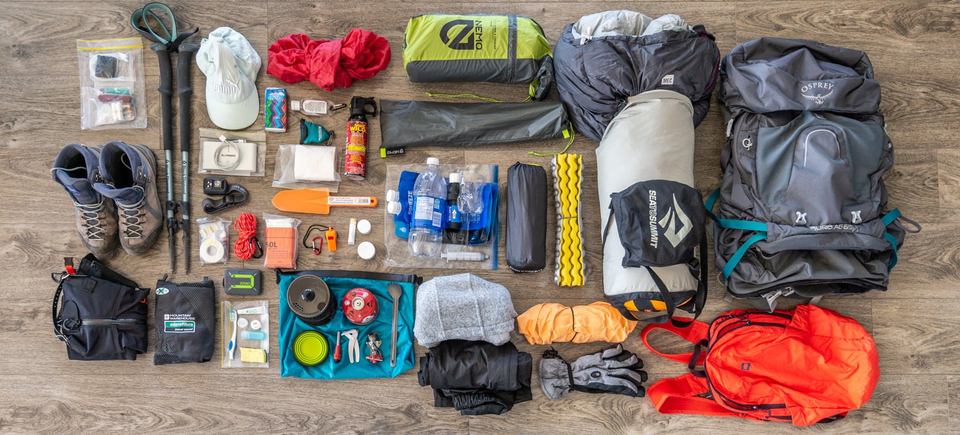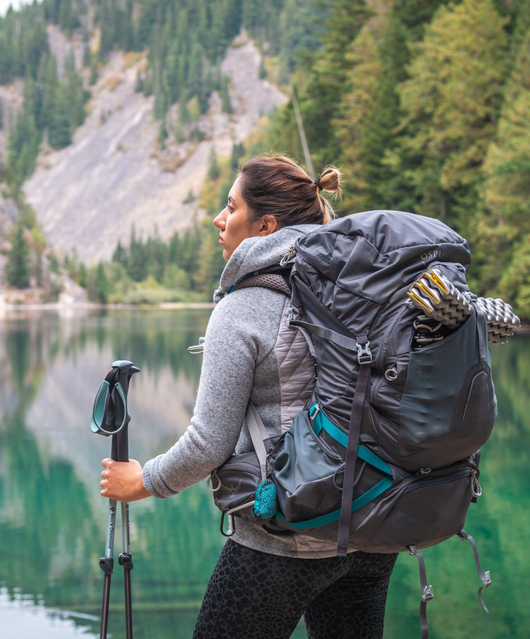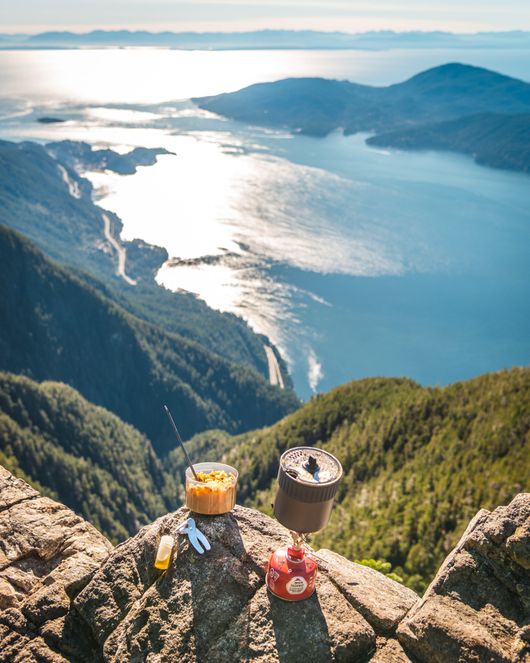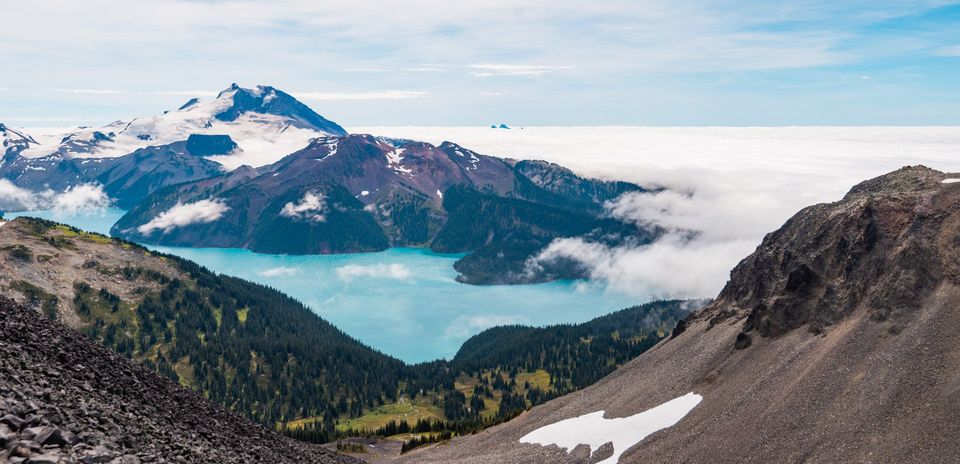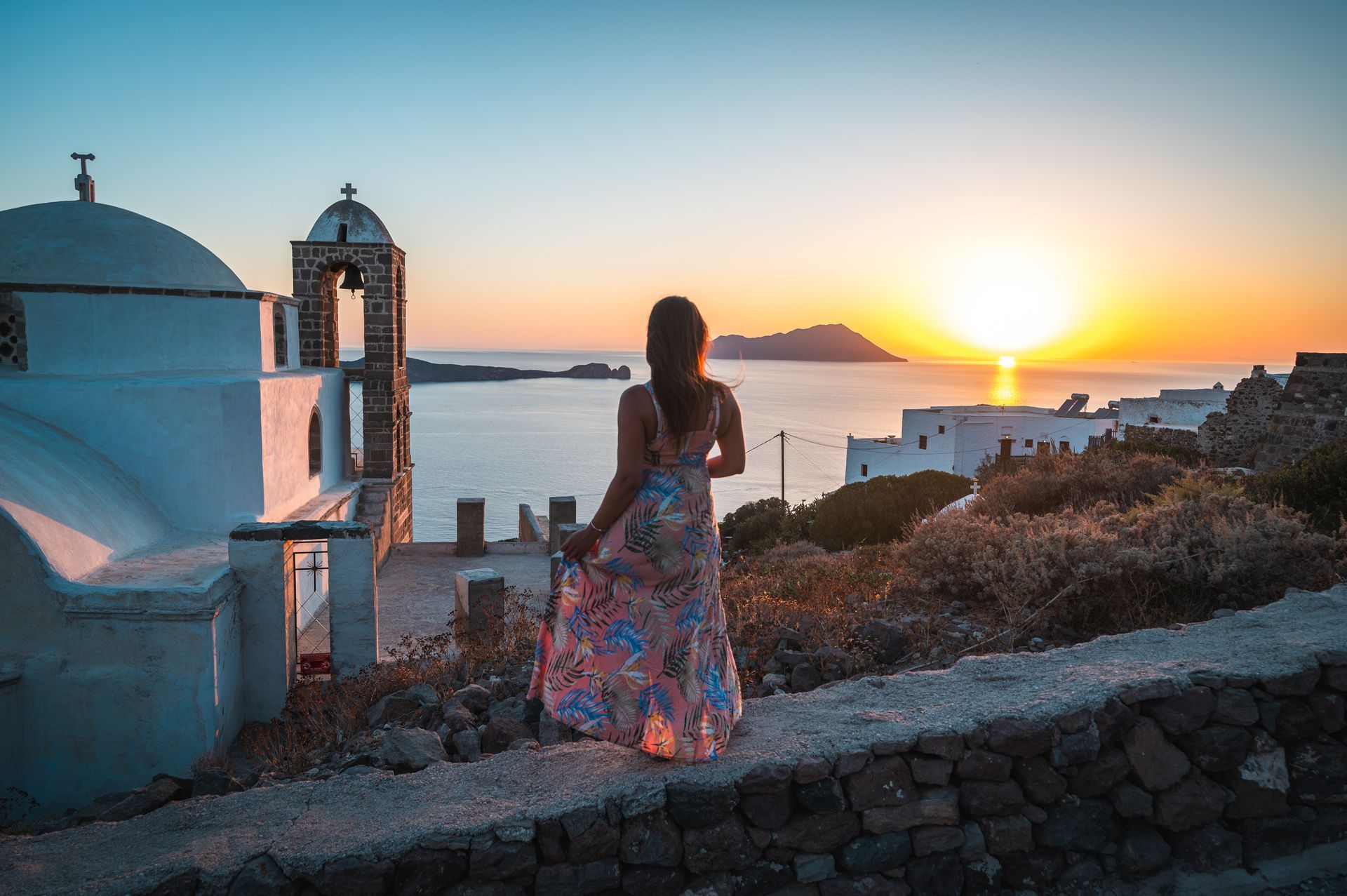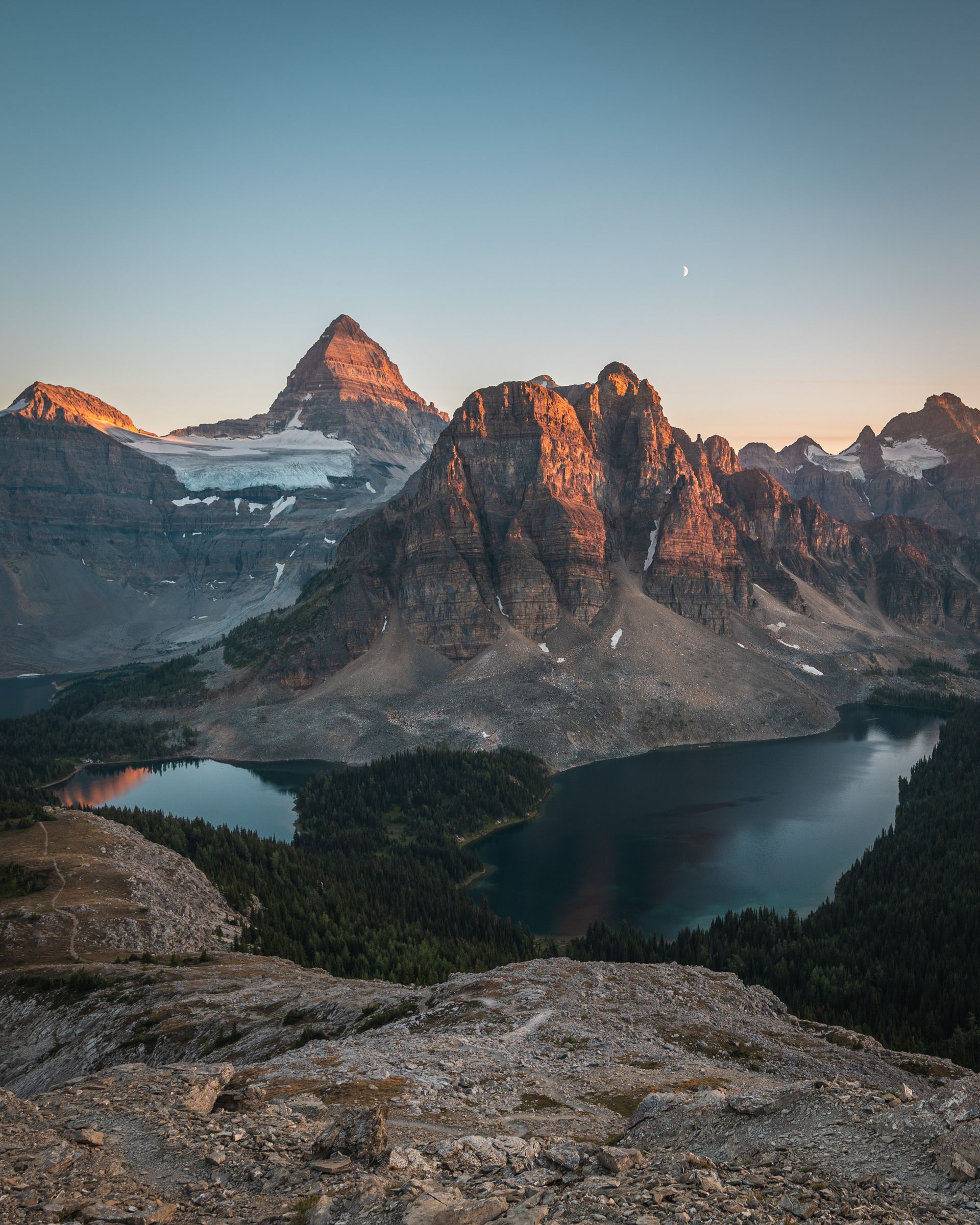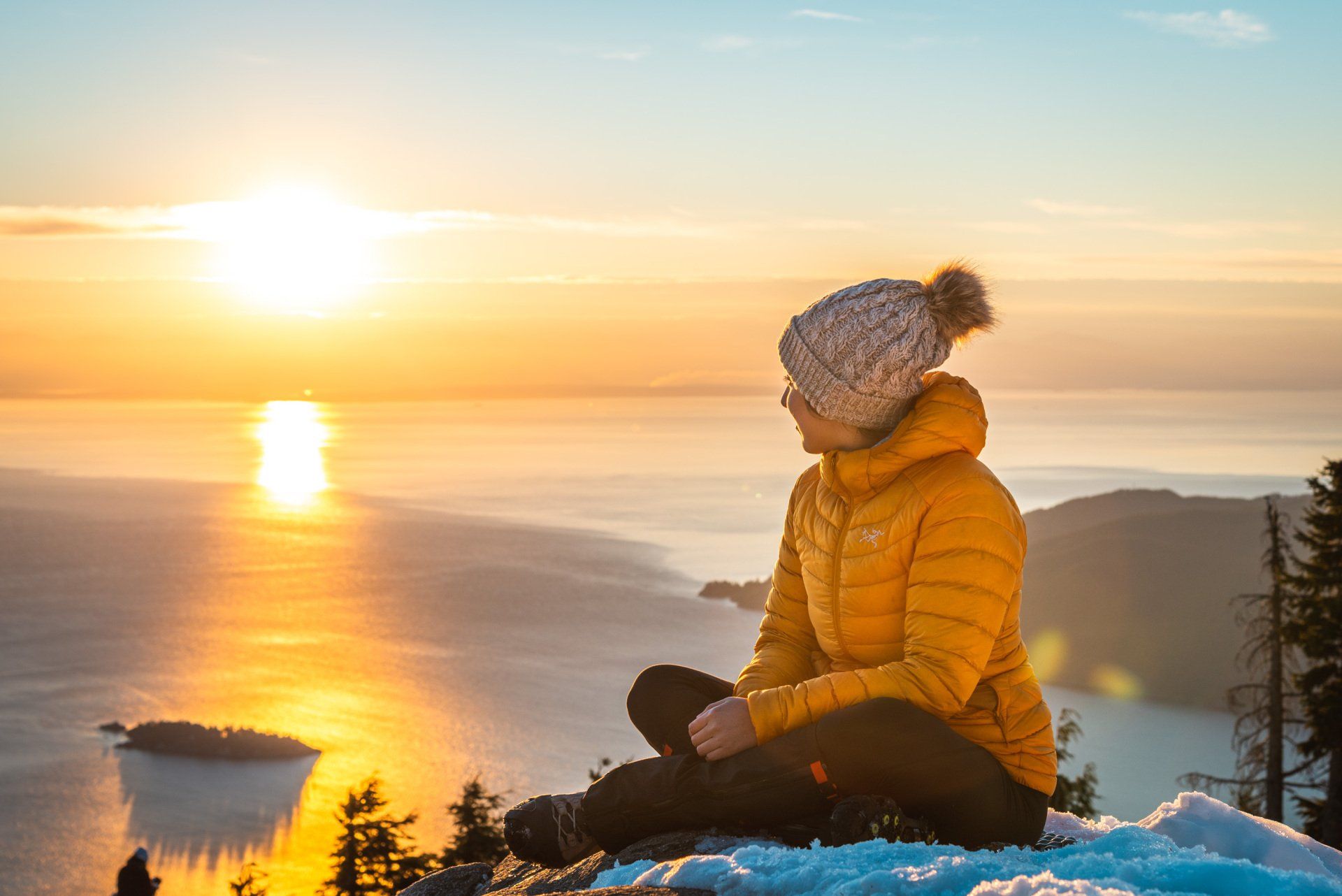7 tips to start backpacking
Are you dreaming of waking up in your tent to an amazing sunrise in the mountains?
Ever wanted to go on a backpacking trip but have no idea where to even start?
Y'all!
In this post I will be sharing my 7 tips on how to start backpacking if you have never done it before!
In summer 2019, I have noticed that day hikes don’t give me enough time to enjoy the amazing scenery of the places I have visited. I was fairly jealous of backpackers I saw trekking up a mountain to see the sunset, every time I was on my way down to the parking lot.
Then I decided that I’m going to do backpacking, too. It took me a good few months to get prepared, and in summer of 2020 I made my dream come true and went on a total 7 short backpacking trips that year, 4 of them solo.
I want to share with you some things that I did implement while preparing and think that they have contributed a lot to my success. Let’s go!
1. Do day hikes
The more - the better!
You probably already hiking (and if not - it’s time!), but now it becomes even more important. You are going to carry a much heavier backpack than the one you’re used to, so obviously the more fit you are, the less you’re going to suffer during the hike, and the more enjoyable your trip is going to be.
If you’re fit, good for you! If you’re not, don’t worry, it doesn’t mean you cannot do it! Just so you know - I have always hated running and any sort of cardio. When I first started hiking with my friends here in Vancouver, I was always stuck behind the group. And even now, when I’m a bit more in shape, I’m really slow.
But you don’t need to be super fast, just patient. So don’t worry, if I can do it, you can do it! And the more you do it, the easier it becomes.
2. Take time to research the gear
Don’t just go to a store and buy the first thing you see. I made this mistake so many times before when buying hiking gear, then wondered why my trekking poles break and my rain jacket is actually not waterproof at all! And my backpack is the wrong size… 🙈 So that’s how I learned I need to research prior to buying anything.
You are going to rely on this gear in the backcountry, where the conditions can be harsh - to keep you warm, dry and safe. You need to ensure every piece of gear you buy is both high quality AND suits your unique needs, so I really encourage you to take a serious approach and do your research.
I share my way going about researching (any kind of) gear in my How to research gear blog post - check it out for some tips on how to make research less overwhelming!
Now, what gear do you actually need in the backcountry? You’re welcome to check out my Backpacking packing list blog post where I’m sharing my own packing list, with all the smallest details, in a copy-friendly format. This is THE list I rely on while packing and you can use it as a some sort of base for your own packing list.
Now, be patient. It took me about 7 months to get all the gear in place. It takes time, but when you have the best gear, it makes your backcountry experience much more enjoyable.
Now, research can be overwhelming. There are many items that you will need to buy, and so many options out there to choose from. If you want some advice on how to make gear research more organized and simple, I’m planning on writing a whole blog post on this topic - so stay tuned!
If you’re curious about what gear I use - check out
the What's in my backpack blog post with pictures and models of everything inside my backpack!
3. Start with the most expensive gear
Research the most expensive gear first. These probably would be a tent, a sleeping bag, sleeping pad and a backpack.
It can sound like a natural thing to do anyway, but there is also a reason I specifically think it’s better done that way: the earlier you start researching a certain gear category, the earlier you figure out what exactly you want to buy - the more time you’ll have for this item to go on sale. And the higher the chance it actually goes on sale before the season starts.
3.5. Go for ultralight gear if…
If you’re a photographer or videographer and you want to carry your heavy gear to the mountain with you - this means that you’re already starting with a heavy pack, even before adding the actual camping gear.
Or if you are a female… and you are planning to go on solo trips.
Then you’re the one to carry all of your gear, and it can get very heavy.
In my case, I am a solo female photographer, so I need to carry a camera, lenses, a tripod, the whole tent and kitchen and all the rest, by myself. Last time I checked, my backpack’s weight was at 15kg, and it could be even more if I weren’t opting for light gear from the start. So see if weight is an important factor to you.
Ultralight items tend to be more expensive, so in case weight is an issue, but your budget is tight, what I recommend to do is - start researching the most heavy and the most expensive categories first - tent, backpack, sleeping bag, sleeping pad. Then, once you choose a few candidates in each category, you can try and see which combination of them gives you the lightest weight for the best price. And this way, if you research ahead, you have a chance to save money without sacrificing too much on the weight.
4. Hunt for sales
Ok, you already got this 😄
Start early on, well before the season, so that you have plenty of time to research and wait for the item of your choice to go on sale.
I got almost all of my major equipment on sale. I started preparing for backpacking in the late fall, bought my sleeping bag and sleeping pad during the Black Friday sales and had plenty of time to wait for other stuff to go on sale before the summer.
5 - Do car camping
I really recommend that you do car camping before going on an actual backcountry trip.
Once you finally got all of your gear, big and small, it’s time to test it! But backcountry is not the place you want to test your gear for the first time… The last thing you want is to hike ten kilometers and then discover that a critical piece of your gear doesn’t work.
It goes without saying that you need to check your gear when you buy it, assemble the tent at home, test your water bladder for leakages etc. But testing at home alone won’t give you the feeling of how the gear performs in real conditions. Does the tent stand the rain? Is the sleeping bag warm enough?
Being next to your car gives you the option to go back home more easily if something goes wrong, while you still are outside, quite close to the real conditions you’re going to use your gear in. Then, when you go on an actual backcountry trip, you’ll be confident your gear is solid.
For me, as a bonus, this was also the first time to camp alone, so it has kinda prepared me for the solo trips I went on later that summer.
By the way, I still have issues sleeping well in the backcountry -
check out My sleeping system (sucks) blog post for the problems and solutions I came across.
5.5 - Hike with your full overnight pack
Bonus tip - while you’re car camping, take a hike with your full overnight pack. That’s for the same reason - you better test and adjust your backpack before the actual trip.
Also, the first time hiking with a really heavy backpack can be stressful.
I was like omg I need to carry all of this up a mountain 😱 But as you hike for a bit, you understand that it is doable, and next time you will feel much less nervous.
For me, I knew I have to do car camping first, because I planned going solo and I knew I could only rely on myself. I also went on a couple of hikes, and I think it has really helped me on my first backpacking trip because I already was familiar with my gear and I felt like I know what I’m doing.
And still I have managed to break my tent on one of the first trips 😅 read
the Nemo Dragonfly 2P review or How I broke it twice for the full story and how to prevent it.
6 - Don’t start with your most desired trip
Don’t start with the top of your bucket list. I mean, you might! You’ve been waiting for so long to get there! But I would still suggest to start off with something else. Why?
Because, again. First time can be more stressful. It can take more time to set the camp and figure out things, and as a result, you may have less time to stroll around and enjoy the place itself. On your second trip, you’re much more likely to be more relaxed and ready to soak in the atmosphere.
One of the places on top of my list was Garibaldi lake. It was closed most of summer because of covid, so I ended up starting with other trips. But when I finally got there - I was SO relaxed. I already wasn’t concerned about anything - not about the hike, not about night’s sleep, I knew I’ll be ok in 0 degrees at night… So I could really focus on this fantastic experience and have so much fun.
7 - Backpack as much as you can
Last but not least - do it as much as you can!
At first, fitting everything into your backpack will be a struggle. Hiking with a heavy load will be hard. Sleeping in the backcountry will be awkward and scary. Backpacking meals would be gross… But the more you do it, the easier and more fun it becomes!
So start your research, get your gear and get outside!
And remember to leave no trace 😌♻️
I hope these tips will get you on track from dreaming to doing and that your backpacking experience will be great from the start.
Read on about my experience backpacking the Wedgemount lake and Saint Marks Summit.
Let me know in the comments below if you have found these tips useful and whether you have any questions!
Cheers,
Oless
